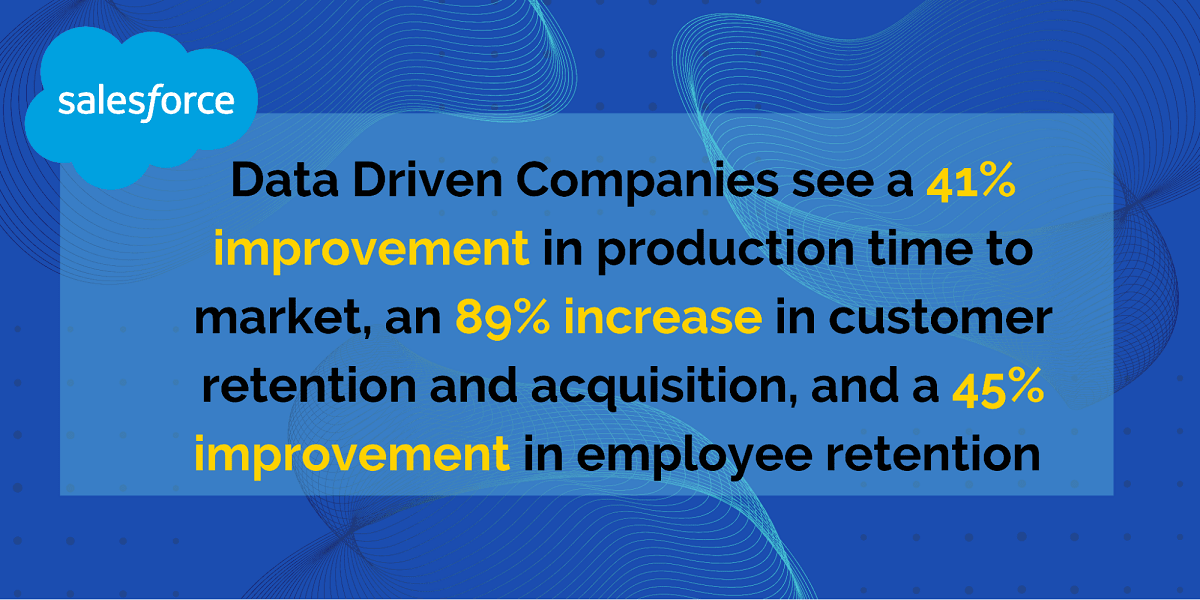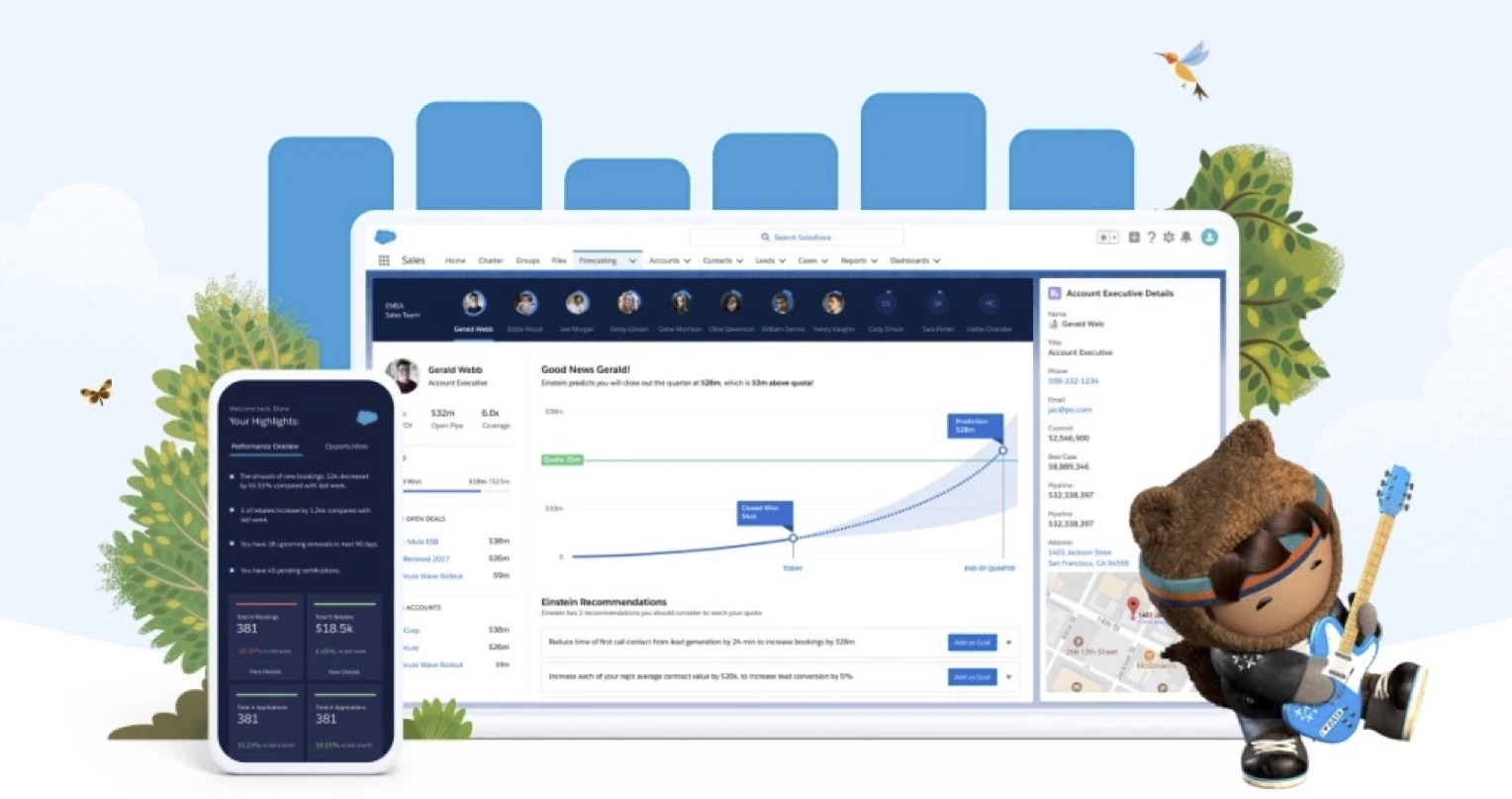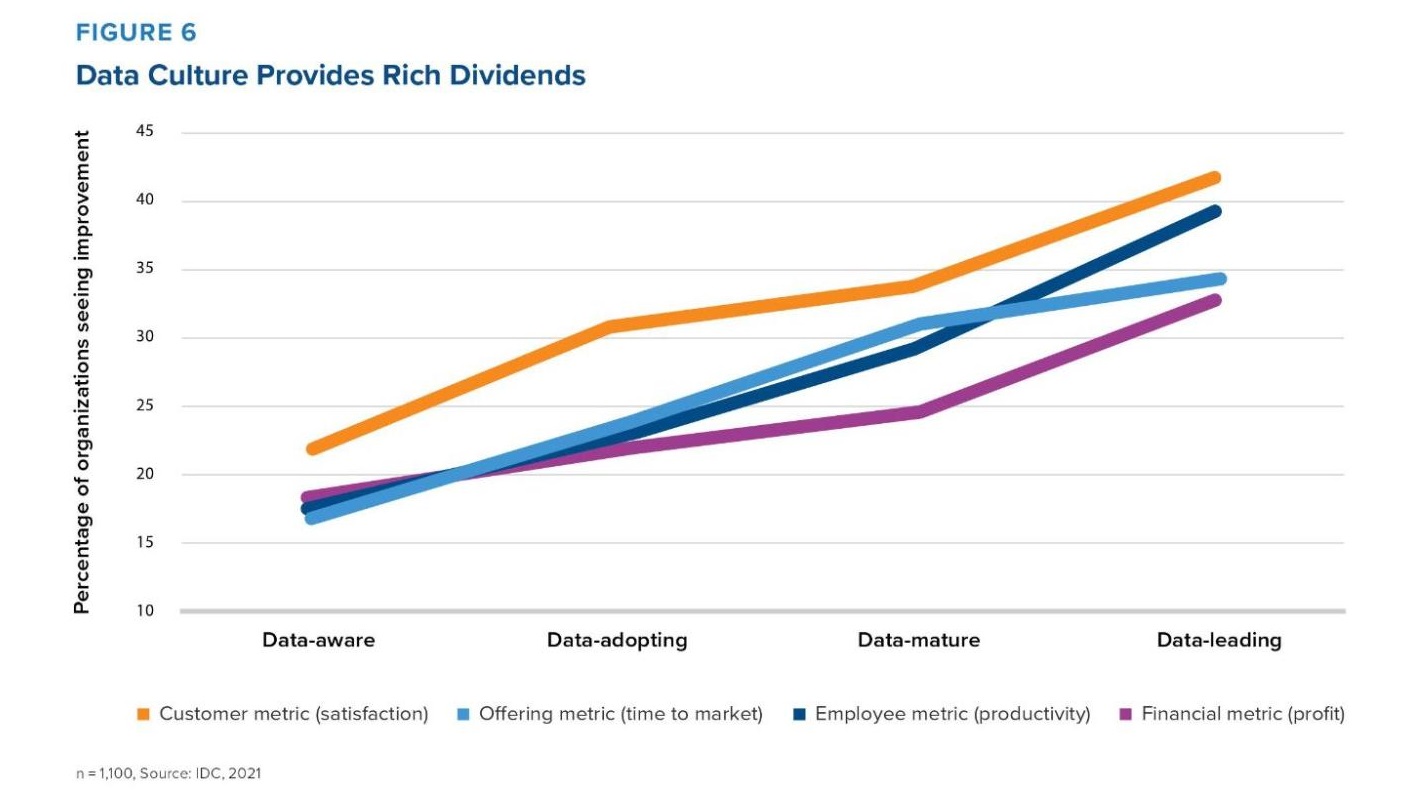Why Companies Need to Be Data Driven by 2024
 Jenna Trott
Jenna Trott
5 min read | June 11th, 2022

Over the last few years, you’ve undoubtedly heard a lot about how critical it is for companies to leverage data as a means to pivot quickly and adapt to changing market conditions. But it’s no longer just a recommendation for extreme market changes. In fact, researchers are suggesting that businesses instead harness the power of data to create a “Data Culture” and infuse information behind every decision, no matter how big or small. A recent study conducted by the International Data Corporation (IDC) in 2021 revealed how businesses that implemented a Data Culture in the workplace saw a distinct advantage in the overall resiliency of their company. Other benefits of backing your business with data include: a 41% improvement in production time to market, an 89% increase in customer retention and acquisition, and a 45% improvement in employee retention, which is all the more critical as we continue to face the Great Resignation (Tableau, IDC). This article will take a look at how to obtain and apply critical data metrics to business priorities, promote widespread data use, grow through value, and future-proof your organization with the help of Salesforce.

What is Data Culture
To begin, we must first understand what exactly is meant by “Data Culture.” Culture can be defined as a “set of shared attitudes, values, goals, and practices that characterizes an institution or organization” (Merriam-Webster). Thus, “Data Culture” is the collective behaviors and beliefs of people who value, practice, and encourage the use of data to improve decision-making (Tableau). This in turn creates a working environment where data is interlaced into the foundations of business operations and thus provides everyone in your organization with critical insights to overcome even the most challenging business obstacles.

Making it Happen
So, how does one go about creating a Data Culture within their business? Like most things, it starts from the top down with leadership. Business leaders must begin with an audit of organization-wide data. What this means is, creating a key set of metrics and working with the entire team to locate, align and create data sources to help support those metrics. But data, on its own, won’t get us far. What’s needed is developing a strong relationship between data and business operations to effect meaningful change.

Creating Relationships Between Data
To establish a clear relationship between data and lines of business, one must first take accountability for information throughout the org. Assess current analytics use and identify what is working, and what is clearly not. Leaders should prioritize the highest-value business problems and use that as the focal point for data-driven transformation. This transformation should be governed by a set of metrics to track performance moving forward. For example, if your goal is to grow customers, you would look at which strategy provides the highest correlation between website engagement or product trials and use that as the basis for all critical decision making.

Executing Change
It’s important to note that for meaningful change to occur, Data Culture must not be linear. One of the most critical aspects about information is that it is constantly changing. So strategic data used to improve ROI last month, may not be the same this month. Leadership should prioritize and execute experiments to assess for any improvements. This consists of adjusting one small factor, assessing the results and repeating as necessary. There will never be one data solution acting as the secret to business progress. Instead, we must consistently document our findings and search for new opportunities where data can help address business stagnation.

Creating Data Culture Throughout
As previously mentioned, creating an effective Data Culture begins from the top down. Thus, it’s those in leadership positions that set the standard for aligning data and business. It is the leadership’s responsibility to identify SMEs (Subject Matter Experts) in each department that can help identify key drivers of performance and look at changes within their department as well as the impact it has on overall business success. It is fundamental that all information, successes and failures are shared throughout the entire organization to provide use cases for future growth and progress. Finally, it’s not only important to find and share data with others, but to also celebrate it. Successes not only work to boost morale but are critical in laying the foundation for future expectations.

The Gold Standard of Data with Salesforce
If you’re feeling pretty overwhelmed right now, We don’t blame you – we just threw a ton of information your way. Effecting meaningful change throughout your entire organization can seem incredibly daunting. However, Salesforce champions using data to drive organizational growth and makes the process as simple and painless as possible. CRM Analytics, formerly Tableau, helps to unleash the full power of your data. Easily infuse highly intelligent and predictive analytics into every client interaction and business decision, to not only provide your whole team with a clearer picture of data, but to curate more profound customer relationships. In addition to diving deep into clean data and analytics, CRM Analytics provides:
Advanced AI
More than just an algorithm, CRM Analytics’ AI is driven by practical applications so you can uncover not only the “why” behind your data, but also how to improve business performance to better reach your goals.
Data Management
Easy to use data prep and cleaning makes it simple to extract meaningful insight no matter what condition the data is in; ensuring that the information you see is the information you can trust.
Total Flexibility
Explore and play with your data. From where it comes from, to where it lives, who gets access to it and how it’s visualized, CRM Analytics can be tailored to your specific needs.
Collaboration
Work better, together. Generate new ideas and opportunities around data to propel your business forward. Sharing insights across channels is not only secure but scalable.

See the Data Difference
Over the last few years alone, data analytics have undoubtedly formed the backbone of digital transformation efforts – and the difference is clear. On average, companies that infuse data throughout all work processes saw a 46.2% increase in customer satisfaction, employee productivity and organizational financial gain over businesses who were just aware of their data.

Unlock the Potential of Your Data
Explore new ways to leverage data into your business to accelerate growth, launch your team ahead of the competition and make the best decisions for your current and future circumstances every time. Access Global Group will help you find the solution that’s right for you and maximize your Salesforce CRM Analytics investment, reach out to one of AGG’s Salesforce Summit Level consulting partners today to start taking full advantage of your data.
Get the latest Salesforce news
Subscribe to get the latest Salesforce blogs, guides, industry reports, events, and all things Salesforce related!
FREE Salesforce Assessment!
To demonstrate confidence in our ability as Salesforce Partners, we’re offering you the a FREE Salesforce Organizational Assessment.
Schedule Today!
Salesforce
PLATINUM
PARTNER
Salesforce
APPEXCHANGE
G2
USER REVIEWS
